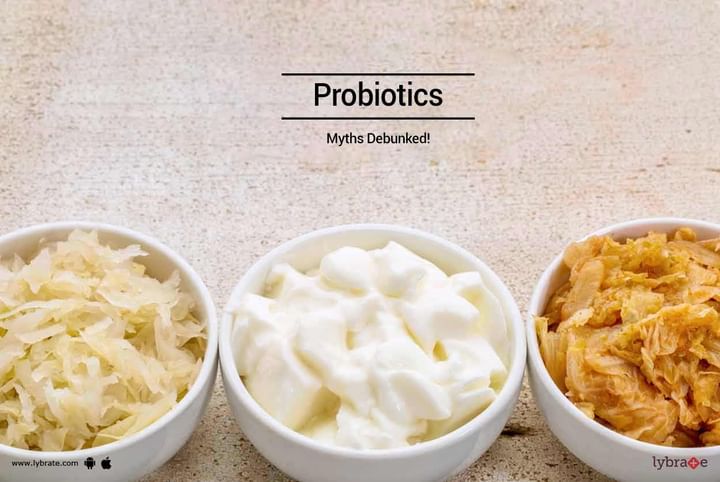Probiotics - Myths Debunked!
With information being bombarded at us from every side, it often becomes difficult to sift through myths and facts. Indigestion is something many people commonly suffer from and probiotics have become an increasingly popular way to treat this condition. Like everything else probiotics are surrounded by a number of myths and misconceptions. Here are the top 3 myths you shouldn’t fall for when talking about probiotics.
Only people with digestion issues need probiotics
We think of probiotics only when suffering from indigestion and stomach upset, but probiotics do much more than cure the occasional stomach cramp. Probiotics can improve a person’s overall health by reducing sugar cravings and strengthening the immune system. It also helps improve the quality of sleep and boosts energy levels. Regular intake of probiotic supplements has also proven to be beneficial for weight loss. By aiding the digestion process, probiotics also help rid the body of toxins and thus, promote clear and healthy skin. These supplements are especially useful when unwell and should be taken along with antibiotics to fight off possible indigestion that may occur as a side effect of the medication.
All probiotics are the same
Walk into a supermarket and you’re bound to see at least half a dozen different types of probiotics. Probiotics can be had in many forms ranging from yogurt to probiotics supplements. Even if you consume yogurt on a daily basis, it may be a good idea to supplement your meals with a probiotic in cases of chronic indigestion. However, not all probiotics are the same. Probiotics vary in terms of potency and the strain of bacteria they concentrate on. Some of these supplements need to be refrigerated while others do not. However, the method of preservation does not affect the efficacy of the supplement. Also, the same probiotics may affect two people in different ways. This is because there are millions of potential combinations for gut flora. Hence, it is important to find a probiotic that works well for you.
Probiotic – prebiotic – they’re the same thing!
Probiotics and prebiotics both work to improve digestion, but the difference between them is more than a single alphabet. While probiotics refer to the bacteria itself that will multiply in your gut and aid in digestion, prebiotics contains fibre and starche that will nourish bacteria and help gut bacteria flourish. Thus, in a way, prebiotics ‘fertilize’ probiotics. Unlike probiotics that are affected by temperature changes and gradually expelled from the body, prebiotics are not destroyed in the body.



+1.svg)
